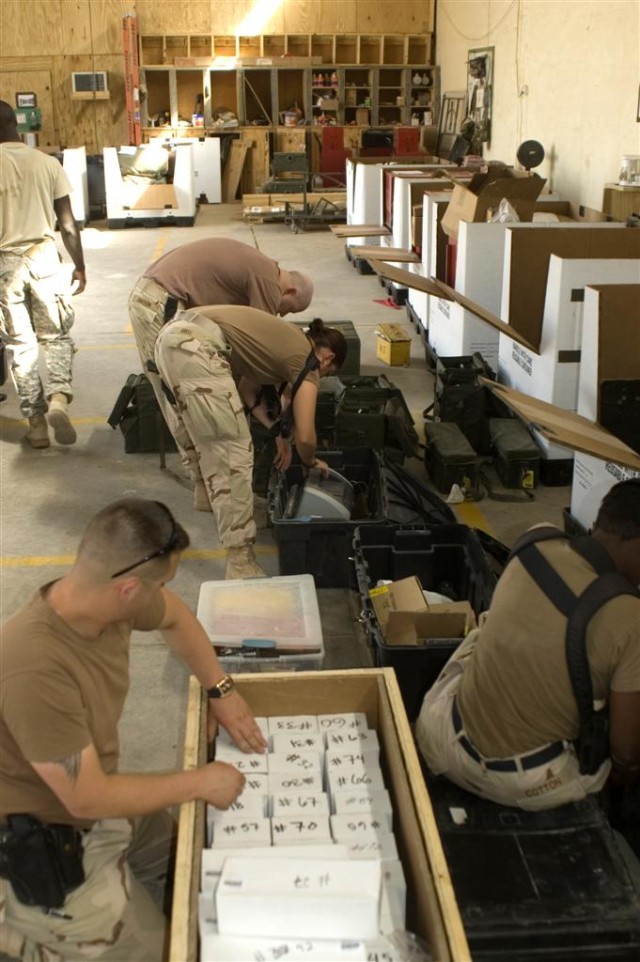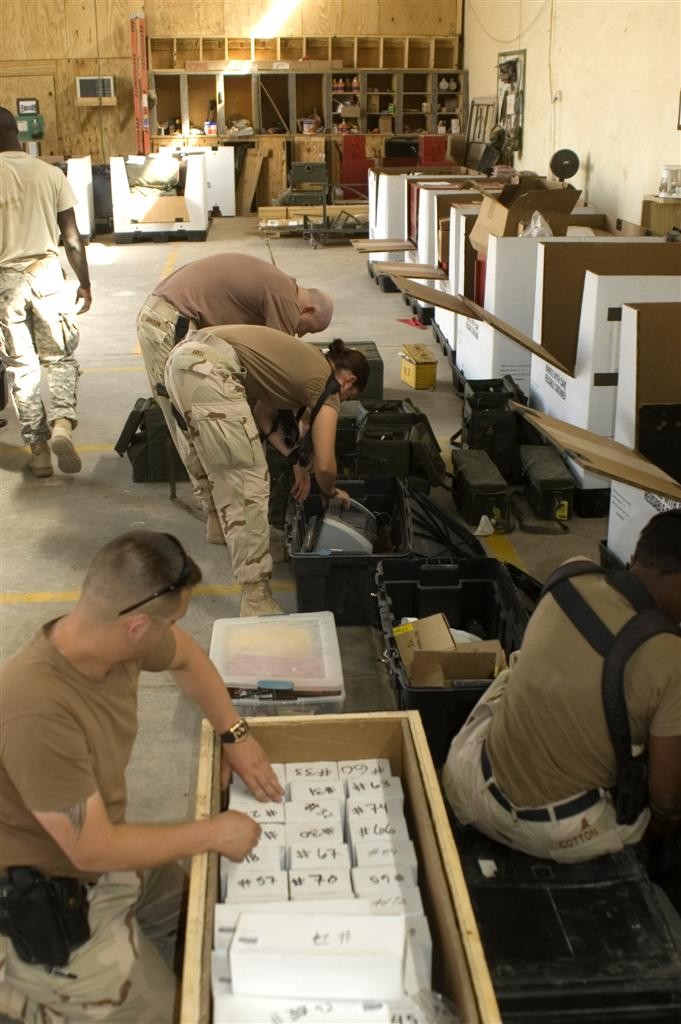JOINT BASE BALAD, Iraq - Going through customs can be a painful process for redeploying service members, but thanks to Sailors at Joint Base Balad, that process is a little bit easier.
The Navy Expeditionary Logistics Support Group, D Company, works with redeploying units to provide customs inspections before they reach Kuwait, so service members can get home sooner.
"It cuts the work in half down in Kuwait," said Petty Officer 2nd Class Brandon Bridges, a native of Fort Ashby, W. Va. "With the number of people there, it's a big deal."
Bridges, a customs inspector with the Naval Reserves, said once a unit's connexes have been inspected for contraband, they stay sealed until they reach their final destination.
"For the most part, if we inspect it here, they won't (re)inspect it (in Kuwait)," said Petty Officer 2nd Class David W. Hartford, a native of Brunswick, Maine.
Hartford said customs agency employees in Kuwait sometimes randomly inspect 10 percent of a unit's equipment, but mostly they simply verify that the numbers on the seals match those on the paperwork.
While the inspectors work to make the inspection process as quick and easy as possible, redeploying units can do their part to make it go even faster, Bridges said.
Units should contact Navy Customs at 443-6411, and schedule an inspection for seven to 10 days before they are scheduled to fly out and provide a point of contact in case of scheduling conflicts or flight changes, said Bridges.
On the day of inspection, units should prepare at least 30 minutes in advance by pulling all equipment out of the connexes and making sure the connexes are properly cleaned, said Bridges.
"Our main goal is to keep things sterile," said Bridges.
Hartford said this also aids in pest control.
"It's important to clean all the dirt and residue in the connex and tape up the vents to prevent critters from getting in," he said.
Hartfort said units often think the inspectors are just looking for contraband, but a large part of the inspection is to make sure no dirt or insects from Iraq make it to the United States as they could damage the ecosystem.
"Our goal is to protect the U.S. from harmful and intrusive entities," said Hartford
Bridges said units can either bring connexes and equipment to the B6 Navy Customs inspection center at JBB, located on All American Drive, across from the PAX terminal, or arrange to have a team of inspectors work at the unit's own site.
"The whole thing is customer service," he said.


Social Sharing